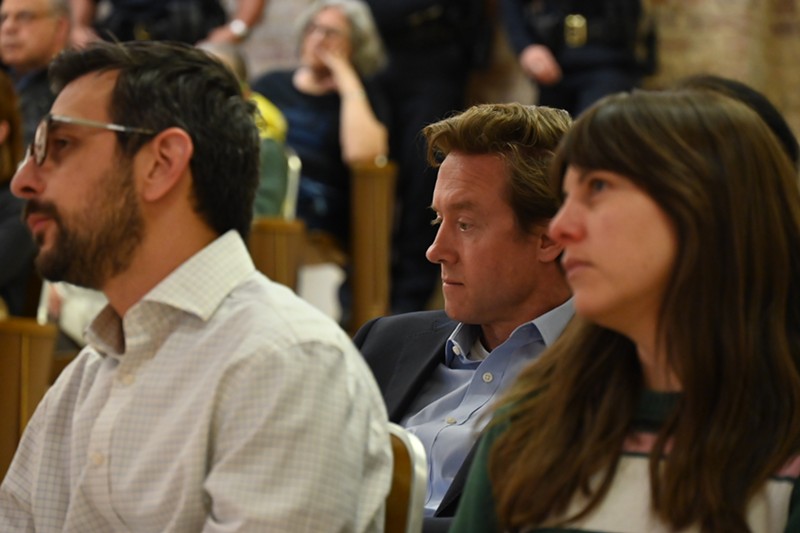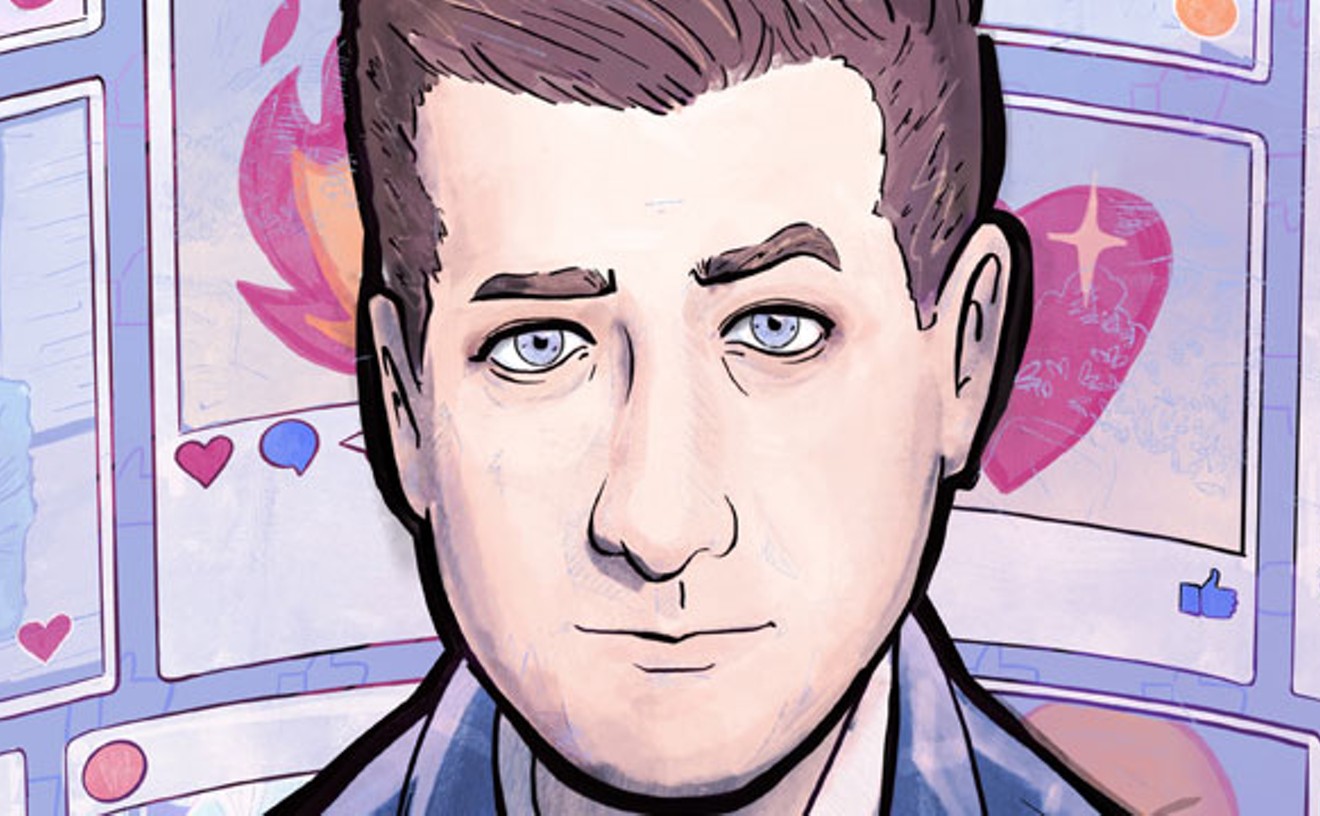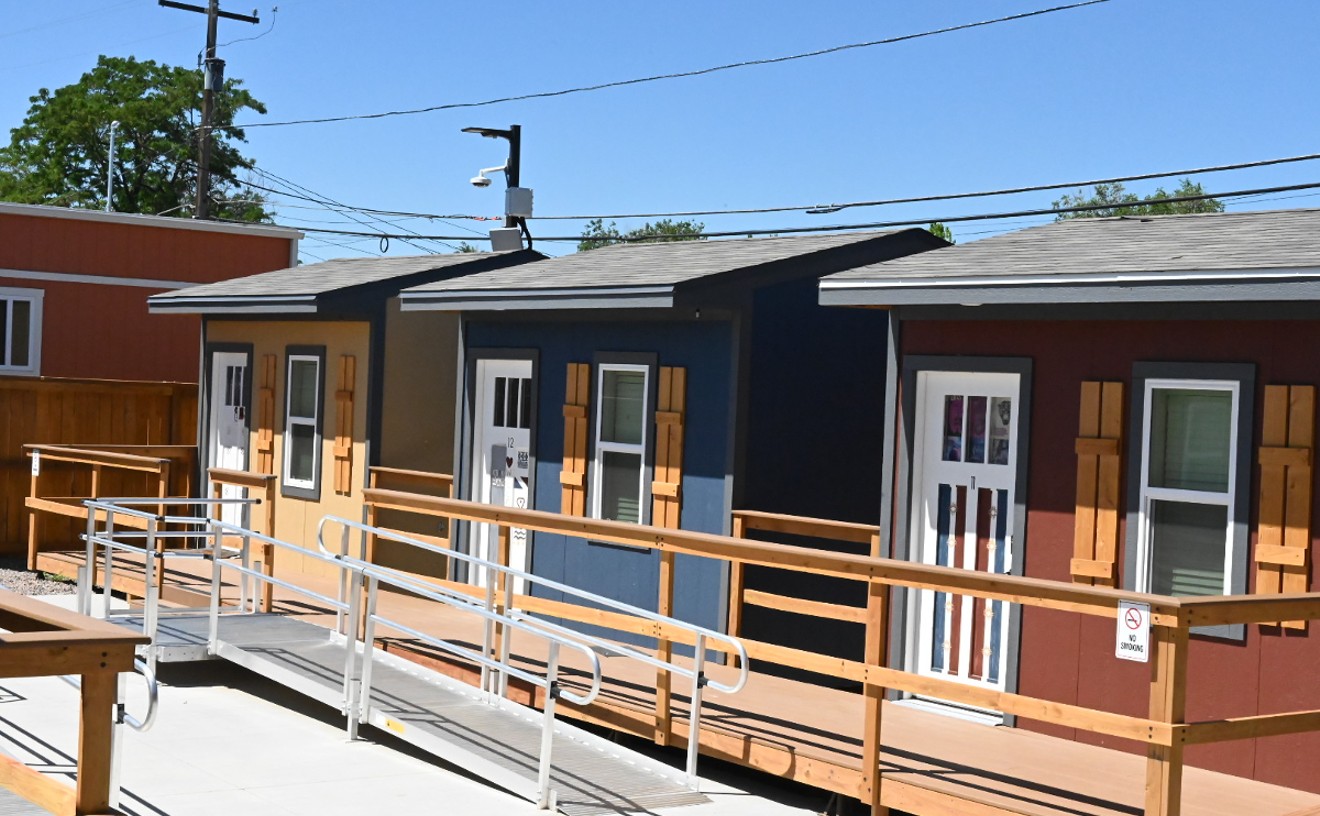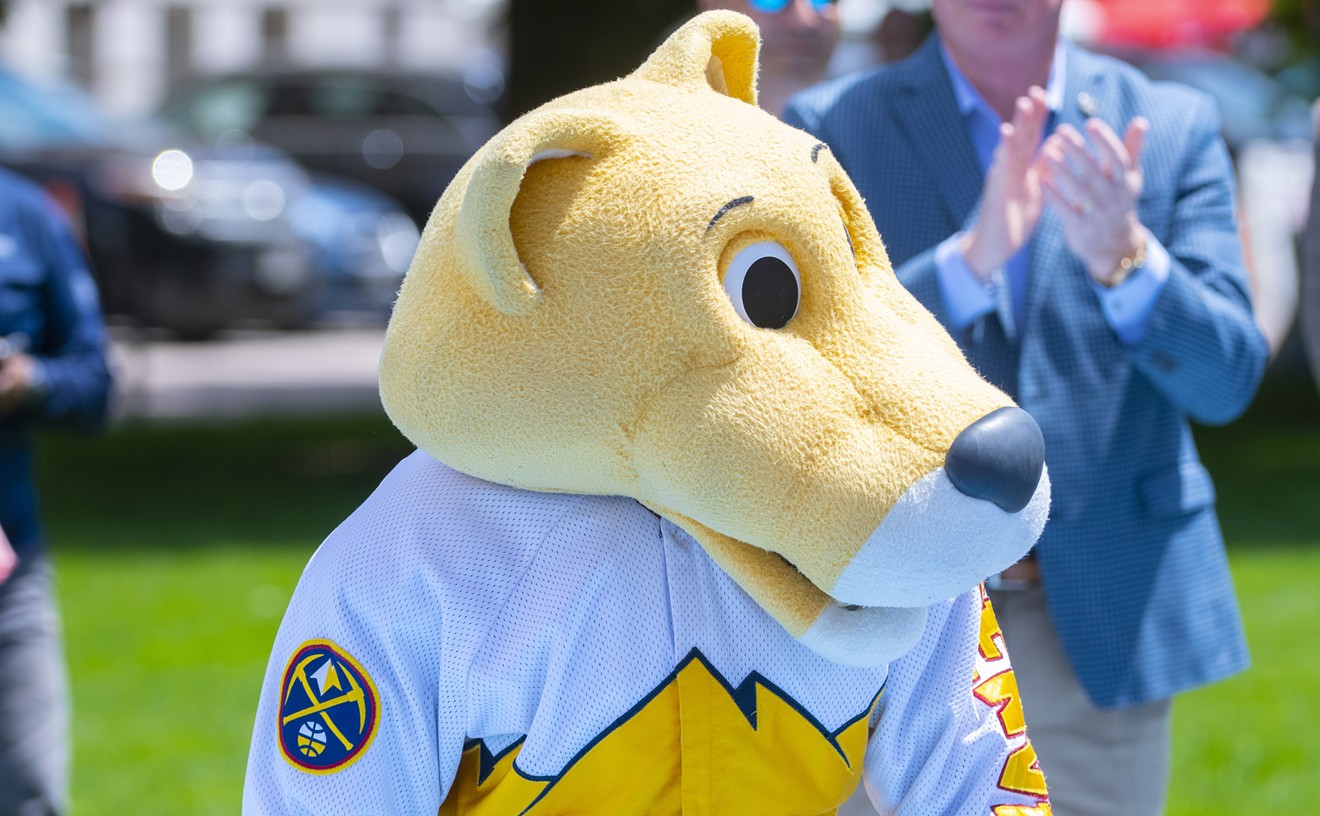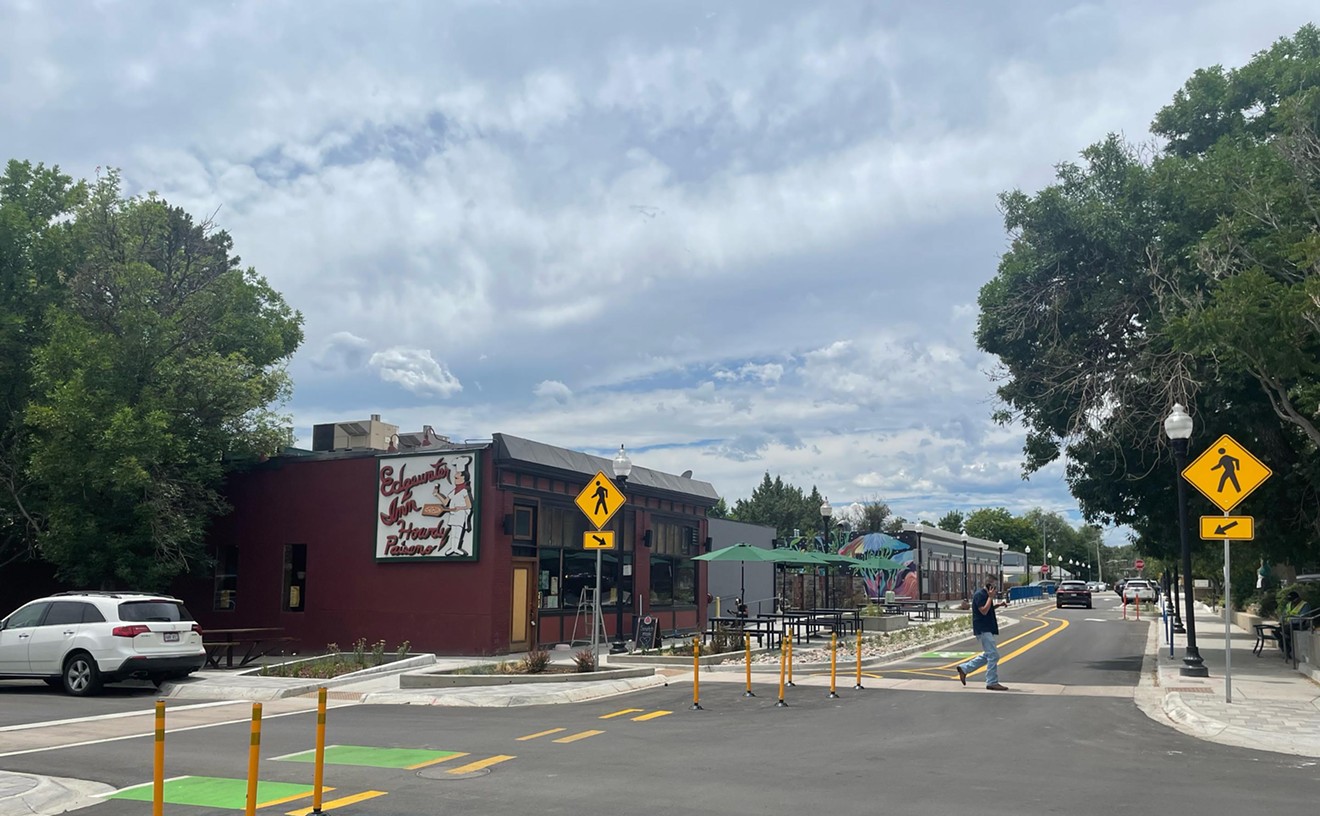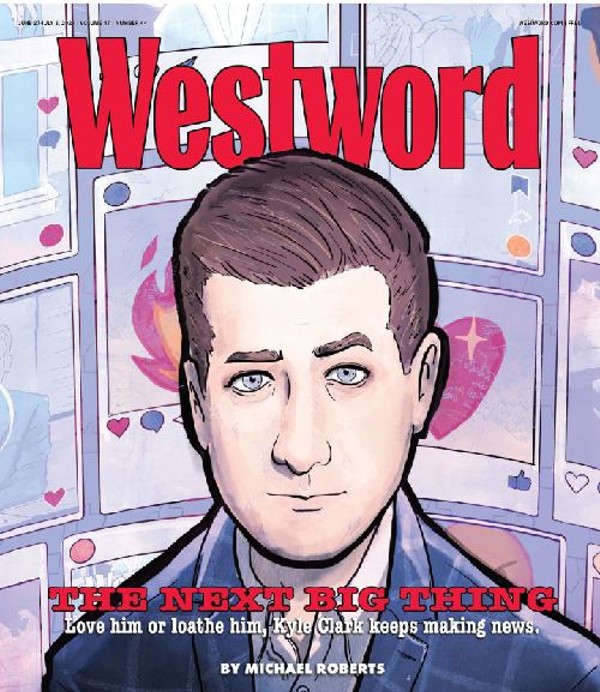Over the weekend, Mayor Mike Johnston called off plans for one of the two micro-communities intended for the downtown Denver neighborhood after meeting with residents on Thursday night, October 12, and seeing their disdain in person.
The Homelessness Resolution Operations Center, a city agency, confirms that a proposed site at 1199 Bannock Street was nixed "due to additional complexities," according to a statement.
"We are not moving forward with the Bannock site at this time," the statement says. "We are grateful for the residents who expressed interest in finding another alternate site in District 10 during our community information meeting, and we will continue to explore other viable options as they arise."
"We are not moving forward with the Bannock site at this time," the statement says. "We are grateful for the residents who expressed interest in finding another alternate site in District 10 during our community information meeting, and we will continue to explore other viable options as they arise."
Originally, two micro-communities were planned for the Golden Triangle, at 1199 Bannock and 1375 Elati Street — an idea that few understood, considering that it's one of Denver's smallest neighborhoods and no others were picked to double up on the burden of hosting temporary housing sites where the city plans to drop off dozens of homeless people in the next few months as part of Johnston's House1000 initiative.
The mayor left that community information meeting on Thursday "even more hopeful than when we started," he told Westword. Johnston's House1000 plan relies on micro-communities across the city housing at least 1,000 homeless Denver residents by the end of the year.
"Even after this, people who were frustrated or who had hard questions would say, 'Listen, I believe in what you're doing, we know what we're doing isn't working, we do want to get folks into housing, that makes sense,'" Johnston said. "I think that people all have fair questions, but I really have seen the spirit of commitment to say, 'We want to solve it. We want to be a part of the solution. We just also want to make sure we can keep our neighborhood safe at the same time.'"
Calling off the Bannock Street site isn't the city's first sign of compromise: A few days before speaking with Golden Triangle residents, the mayor met with residents of Overland (on Sunday, October 9) and told them he shrank the size of the micro-community that is planned for their neighborhood. Groundbreaking was scheduled to start that week.
The Golden Triangle is a state-certified creative district with boundaries that match up with the Civic Center neighborhood. Johnston met with residents from the area two weeks ago on Thursday, September 28, as well. The meeting on October 12 was more sparsely attended, with about a dozen empty seats in the Evans School auditorium. About 130 people attended; the last meeting was standing room only.
Many of the people who showed up voiced the same questions they had since the mayor unveiled the location of the first eleven micro-communities in August: Why does their neighborhood have to host two? How will the mayor keep them safe? Will the micro-community residents be doing drugs in their neighborhood?
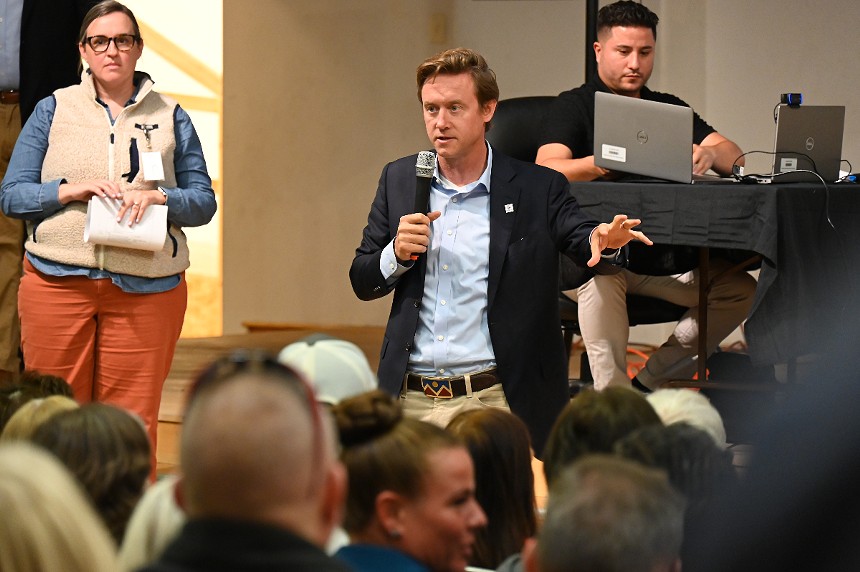
Mayor Mike Johnston held a community information meeting in the Golden Triangle on Thursday to reveal plans for the two micro-communities that were supposed to go in the neighborhood.
Bennito L. Kelty
The loudest applause of the night broke out when one resident declared, "We're all okay having one of the micro-communities here. Having two and saying that [Denver City Council] District 10 is working hard, that's disingenuous, because District 10 is not taking the burden. It's Golden Triangle that's taking the burden."
Jonhston replied, "That's a very fair question. That was not intentional."
After being interrupted by residents, the mayor said, "You've got to let me talk, please."
He then continued: "What we did was search for sites, and we ended up with two here. We are aware of the concerns about two sites being here. That's what tonight's conversation is about. If we do go through with two of those, I think there's a real scenario where we say, 'District 10 is much larger than the Golden Triangle.'"
An individual who told Westword that he's homeless was in attendance and said to the mayor, "Hey, you're wrong. Things must be re-looked at." To which Johnston said, "We'll be happy to help."
Jonhston replied, "That's a very fair question. That was not intentional."
After being interrupted by residents, the mayor said, "You've got to let me talk, please."
He then continued: "What we did was search for sites, and we ended up with two here. We are aware of the concerns about two sites being here. That's what tonight's conversation is about. If we do go through with two of those, I think there's a real scenario where we say, 'District 10 is much larger than the Golden Triangle.'"
An individual who told Westword that he's homeless was in attendance and said to the mayor, "Hey, you're wrong. Things must be re-looked at." To which Johnston said, "We'll be happy to help."
Building and maintaining micro-communities, including pallet shelters and tiny-home setups, is expected to eat up almost half of the $50 million that the city is pouring into Johnston's housing plan through 2024.
The Golden Triangle will now host just one micro-community — in the parking lot at 1375 Elati Street, across from the Lindsey-Flanigan Courthouse. The other site was slated to go in a parking lot at 1199 Bannock, near the Kirkland Museum.
The micro-community going in at Elati is designed to host 51 units; six of them will be for people with disabilities; two community spaces and two meeting homes will also be constructed for residents to gather; two pet relief areas will be available as well.
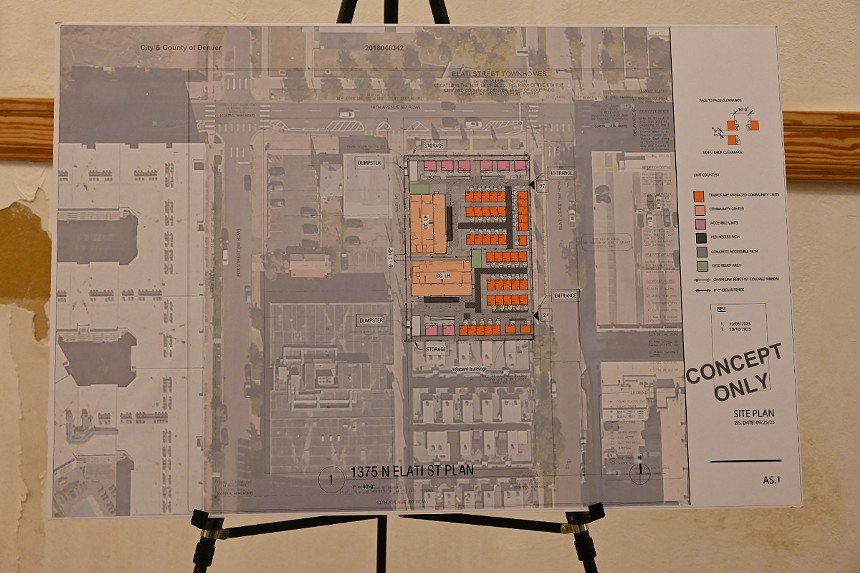
The micro-community plan for the 1375 North Elati Street site shows that it will host 51 single-occupancy units and four places where residents can gather.
Bennito L. Kelty
The individual units that are still going in at Elati Street will come with air-conditioning and heat as well as "a bathroom, storage, a lock and key," Johnston said. Some of the units will have a front patio. Individual units will be bunched together in rows of five, but the disability-accessible units will be more spaced out.
Outside the "micro-sleeping units," as city officials began labeling them, there will be 24/7 security and staff. All city micro-communities will enforce a no public drug use or distribution policy and require cooperation with police. Residents can be removed for violating rules, according to city documents, and Johnston reiterated that point.
"If you do break the rules, you can either be removed from the site or you can be arrested or charged," Johnston said. "There's a resident contract they sign to be able to stay, and it requires them to meet those obligations."
Later in the meeting, Johnston added that letting the encampments continue to exist would be more dangerous than bringing homeless residents together in micro-communities. "We get 7,000 to 8,000 calls a year to encampments. They are the most dangerous thing in the city," he said.
As he did during his meeting in Overland, Johnston brought up Good Neighbor Agreements as a safeguard for the neighborhood against micro-communities getting out of hand with the service providers selected to run them.
"On the provider, if they don't keep the Good Neighbor Agreement, we can remove them and bring in a new provider," Johnston told the crowd. "That is the accountability side. If they don't meet the expectations you put in place, we can change those providers."
The city started putting out requests for proposals to find service providers for its micro-communities several months ago. It will start selecting those service providers in the coming weeks, according to city officials.
The micro-community will have heightened police patrols around it, Johnston added. Denver Police Department officer Aaron Sanchez, the former commander of DPD District 6, which includes the Golden Triangle, told residents he's training officers to do regular bike patrols around the micro-community.
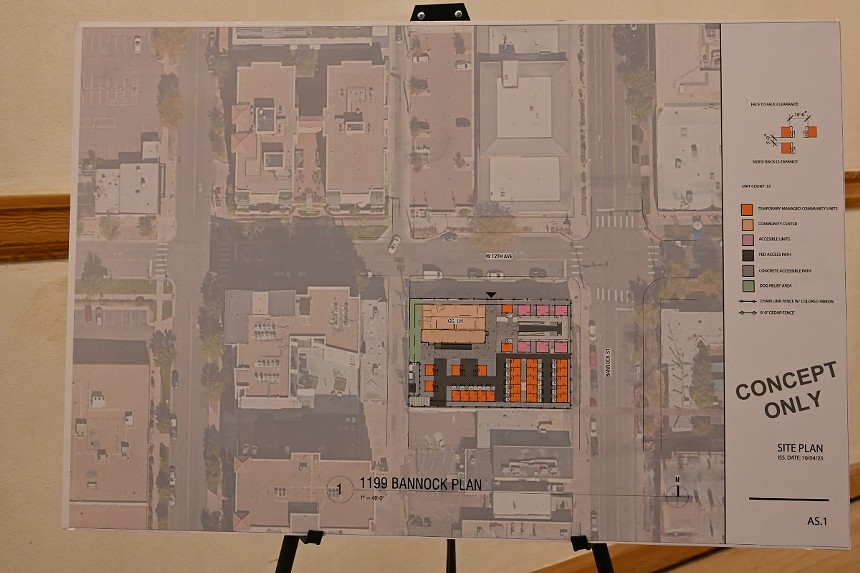
The design for the 1199 Bannock Street micro-community that would have hosted 32 single-occupancy units with a gathering space for its residents.
Bennito L. Kelty
Johnston's senior advisor on homelessness, Cole Chandler, has said that micro-communities will only be populated with homeless residents displaced by sweeps.
Johnston also revealed his new timeline on Thursday, saying that he hopes to find service providers to run each of the micro-communities by the end of October.
Johnston expects that the city will start constructing and inspecting micro-communities in November, though a groundbreaking is already set to occur in the coming days at the 2301 South Santa Fe Drive site in Overland.
Johnston moved his "move-in" date to December, when he expects to start bringing homeless residents into the micro-communities. He had said in early September that the move-in date would start as soon as November.
He also emphasized on October 12 that the city will rely on volunteers to help with the move-in.
The mayor plans to hold a community information meeting with neighbors ahead of the installation of each micro-community.
In addition to the meeting in Overland, the mayor has also held two other community information meetings. The first was at the Martin Luther King Jr. Recreation Center on October 5 to talk about housing at the Best Western Central Park Hotel; another meeting took place on Tuesday, October 10, at the La Familia Recreation Center to talk about the micro-community at 950 West Alameda Avenue, in the Baker neighborhood.
The next community information meeting will be on Tuesday, October 17, at McGlone Academy, to talk about the 12033 East 38th Avenue micro-community in the Central Park neighborhood.
"I feel more optimistic now than when we started that there is a real path to get this done," Johnston says. "We'll get this done and change the way Denver feels."

